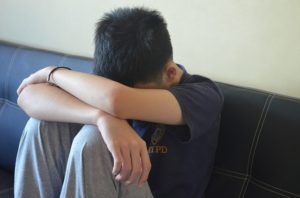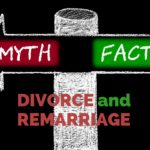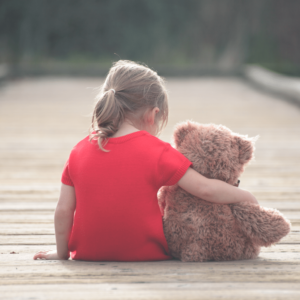
Most of us from divorced families do not see ourselves as “damaged goods.” But neither are we willing to be held up as convenient proof that kids don’t need both parents. None-the-less, children are deeply shaped by divorce.
For years, our national debate about divorce has focused on badly damaged children. Most studies show that children of divorce are two to three times more likely to end up with lasting social and emotional problems. These are things like addiction, mental illness, an arrest record, or a teen pregnancy. But the majority are not scarred in this way. For parents considering divorce, the take-home message has been clear: Divorce might hurt your kids, but most likely they’ll be just fine.
But now the debate —and the questions —are changing.
Children Deeply Shaped by Divorce
Today, one-quarter of young adults between the age of 18 and 35 are grown children of divorce. These 15 million young people across America have a very different take on divorce. Most of them are relatively successful. They don’t see themselves as victims or damaged goods. Most have graduated from high school, and maybe gone to college or beyond. They have gotten jobs, gotten married, and had kids. When they hear the debate about damaged children of divorce, they cringe. “That’s not me,” they say.
But in a first-ever national study of grown children of divorce, which I conducted with professor Norval Glenn at the University of Texas-Austin, these young people told us that, even if they were not forever damaged by their parents’ divorce, they were still deeply shaped by it in ways that should make parents think yet again before divorcing.
It turns out that any kind of divorce, whether or not it’s amicable, gives children an entirely new and burdensome job. After a divorce, the parents no longer have to confront their different worlds. They don’t have to confront their different values, beliefs and lifestyles. In fact, their inability to handle that challenge may have led to the divorce. But the big job of making sense of the parents’ two different worlds does not go away once the divorce papers are signed. Instead, this job gets handed to the child alone.
Negotiating Two Separate Worlds
Many grown children of divorce told us they had to grow up negotiating two wholly separate worlds. They rose to the challenge by becoming a different person with each of their parents. They had a mom-self and a dad-self inside them. And they pulled out the one they needed depending on where they were that day. They had to grow up fast and often felt much less emotionally safe than their peers with married parents. They are even compared with some whose parents were unhappily married.
Being the lonely link between two different worlds made the grown children of divorce more often feel they had to figure out the big questions in life. What is right and wrong? Where do I belong? Is there a God? —alone.
But doesn’t it matter how the parents divorce? If divorced parents don’t fight, doesn’t that help? Sure, to a point. An amicable divorce is better for kids than a bitter one. But it turns out that only one-fifth of the grown children of divorce say their parents had a lot of conflict after the divorce. Instead, the grown children of divorce told us that the divorce itself made their parents’ worlds seem forever locked in conflict, even when their parents did not fight.
The Child’s Identity
This silent conflict between two worlds went to the heart of the child’s identity. The children of divorce come to feel like divided selves. When they grow up, some wonder whether they can be their whole, true self around anyone.
There’s a new debate about divorce emerging, with the grown children of divorce leading the way. I’m one of them. My parents split up when I was 2 years old. At 35, I’m speaking for my generation when I say this: Most of us from divorced families do not see ourselves as “damaged goods.” But neither are we willing to be held up as convenient proof that kids don’t need both parents. We needed our parents, living together, married to each other, and preferably getting along well.
And if our parents could not stay together —and some cannot —we needed to grow up in a culture that didn’t focus on only the most tragic outcomes and dismiss the rest of the kids as being just fine.
We may not have been broken by divorce, but our identities were deeply shaped by it. In the national debate about the impact of divorce, our stories matter, too.
This article was originally titled: CHILDREN OF DIVORCE: We’re Not Damaged Goods, But We’re Still Deeply Shaped by Divorce. It was published in the Philadelphia Inquirer December 11, 2005 and is written by Elizabeth Marquardt.
— ALSO —
A related article, written by Tricia Goyer, posted on the Family Life web site, would be beneficial to read:
• IT HURTS TO BE A CHILD OF DIVORCE
More from Marriage Missions
Filed under: Separation and Divorce







(AUSTRALIA) Ok, I read this article and being the child of divorced parents, I agree with not being able to relate to most people. I also have a hard time trusting anyone I haven’t known for a long while. We are shaped by this conflict and I do question whether or not I’m broken regularly.
(USA) To Whom It May Concern: My name is Samantha Friedman, an alumna of the University of California at Berkeley and Fordham University, and I am currently a doctoral clinical psychology student at Saybrook University (San Francisco). I am seeking adults between the ages of 20 and 35 who have experienced parental divorce in either childhood or adulthood to assist me in the completion of a study that examines the effects of parental divorce on marital attitudes and intimacy.
If you agree to participate in this study, please click on this link (http://www.surveymonkey.com/s/TK8Q7GT) and complete the survey on SurveyMonkey.com. The online survey I am conducting is very easy to complete. The whole process is designed to take less than 15 minutes to complete. Participation in this study is completely voluntary and anonymous. You are free to not answer any question, to stop participating at any time for any reason, and to not have your information be part of the data set. All forms will be kept confidential; that is, no one will have knowledge of which questionnaire belongs to you.
The aim of my study is to learn about the psychological impact of parental divorce, particularly how the age at which parental divorce occurs influences attitudes towards marriage and intimacy. It is of particular importance to examine the effects of parental divorce on marital attitudes and levels of intimacy because they are indicators of relationship stability. The ultimate goal of this study is to acquire data that can be used to assist adult children of divorce in understanding the impact of mid- to late-life parental divorce and develop strategies that encourage healthy, lasting marriages.
Please contact me if you would like a summary of my findings when the project is finished. If you have any questions, please contact me at SamanthaFriedman@hotmail.com.
Thank you in advance for your time and assistance. I really appreciate your help and I am sincerely grateful. Best wishes, Samantha Friedman
(ZIMBABWE) Marriage Missions has helped me counsel a number of couples who wanted to divorce. The materials are just too good to avoid.
(ZAMBIA) I am a victim of divorced parents but I thank God that there is nothing too hard for Him. I have grown up well, had a normal childhood. My parents did their best to take care of me when I was a child whenever I was with one of them. I grew up well and gave my life to the Lord. I don’t think I am dysfunctional, either emotionally or socially, because my life is in the Healer’s hands.
(SOUTH AFRICA) Can a child’s brain or memory be affected by parents separation? My 7 year old daughter is struggling at school and I still don’t have answers for this.
(SOUTH AFRICA) My parents divorced when I was 4 years old, at which point I moved with my mother to South Africa and my father and older brother stayed in Germany. Apparently we (the children) had to choose which parent we wanted to stay with and I first chose my mother… something which I have subsequently been blamed for by my mother (who prefers my brothers -I was the only daughter). Following the divorce I began wetting the bed (which is obviously an indicator that it affected me). When I was 10 years old my mother remarried… only to divorce again when I was 20. The step”father” was physically and emotionally abusive… from the age of 10-20 I was repeatedly told how stupid, fat, and ugly I was until I ended up with an eating disorder.
Thankfully God helped me overcome this. Actually there was nothing wrong with my physical appearance but nobody was on my side -not even my mother. I was flown over to see my other family in Germany approx once every 4 years. As a result of my low self-esteem I was very shy, never had boyfriends, was very socially inept. I would say my entire social and emotional development was delayed. When I was 36 I got married -was so anxiety-ridden with stage fright and traumatized by the lack of support from family that I couldn’t handle my own wedding – my own mother turned against me – had to see a psychologist afterwards who explained how all my abandonment issues and insecurities surfaced during the wedding. Just standing up in a staff meeting and having to say something in front of others is stressful for me. Sounds ridiculous, I know…! I am now 38… and becoming a stronger person day by day.
I am 27. I was 12 when my dad divorced my mom. It damaged my whole family :( divorce is NOT the answer when 2 married people are fighting! Work the arguments out!!!! That’s why there’s counseling!!!!! If you’re not happy, that is NO excuse!!!!!! Think about your kids!!!!!! People need to wake up and smell reality!!!!!!
I’m curious Alison, what if one of your parents had an affair (that the other was completely blindsided by) would you still recommend that the offended party stay within the marriage for the children’s sake? I would really like to hear from you on this, because that is what happened to me and I stayed because I couldn’t (still can’t) imagine putting my two beautiful boys through something as hurtful as a divorce, but I wonder sometimes if my decision was ultimately the right one for me? Sounds so selfish to want something for oneself, but to have to wade through an ocean of pain, humiliation and rejection sometimes seems too much.
I’m sorry that you ever had to go through your parents divorce. I would also counsel against it should the reasons for divorce be anything less then adultery. But in the case of adultery it is SO difficulty to stay to convince yourself to stay even if it is to prevent your children from the pain of divorce…